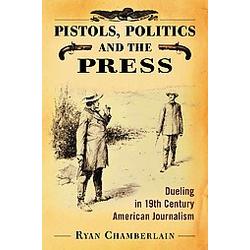Could the United States Ever Become a Third World Country? This is a pretty weighty subject for the first blog entry, but one that was inspired by the recent turmoil of the American financial markets and my family members’ exploits in Mongolia representing the Peace Corps. If you ask many Americans, they would probably laugh at the idea. More than that, many Americans would probably think it was offensive to even suggest it.
Clearly, if we are to look at historical trends, America’s status as one of the most powerful countries in the world is bound to ebb and flow. In the law of averages in recorded human history, it’s not a question of “if,” but a question of “when.” Let’s have a quick overview of some of civilization’s greatest hits:
These empires had their day in the sun and now seem like shadowlike remnants of their once heralded status. But does what happened to those empires have any bearing on what is happening in America today? It would seem one might be able to draw interesting parallels. Wrote Jean Veon in a September 22, 2008, Newswithviews.com article, “America Reduced to Third World Status:”
World history is spotted with stories of political conquests: Attila the Hun, Genghis Khan, the Pharaohs, Alexander the Great, and Roman Caesars, each who seized physical control of a country, its economy and assets. History holds no story of a take over based solely on a country’s assets, until now. The modern day Attila’s, Genghis Khan’s, Pharaoh’s, and Caesar’s are the men who own and control the Central Banks of the world. America’s Central Bank is the Federal Reserve, which controls our monetary system, is not part of our governmental system, and, although its name would imply, it has no reserves.
But is that too drastic of an analysis? What seems more likely is that the United States may be poised to decline in a way similar to more modern European empires such as England, Spain and France, which rose and declined over the passage of time. Consider this view from Time.com’s September 21, 2008, article by Bill Saporito, “How We Became the United States of France:”
This is the state of our great republic: We’ve nationalized the financial system, taking control from Wall Street bankers we no longer trust. We’re about to quasi-nationalize the Detroit auto companies via massive loans because they’re a source of American pride, and too many jobs – and votes – are at stake. Our Social Security system is going broke as we head for a future in which too many retirees will be supported by too few workers. How long before we have national health care? Put it all together, and the America that emerges is a cartoonish version of the country most despised by red-meat red-state patriots: France. Only with worse food.
So is this recent financial crisis the end of America as the reigning superpower in the world? Probably not. But it should give one pause to consider the historical ramifications and consequences at stake when resolving a crisis such as the one America is facing now.
What’s at stake? At the Peace Corps swearing-in ceremony in Mongolia, a country located between China and Russia, my brother and sister-in-law were reminded of how far a mighty empire can fall. To the Americans, the Mongolian Minister of Education said, “Be careful how you use your power. As you may remember, we were the most powerful people in the world 800 years ago.”
According to the Peace Corps, as of 2004 only 62% of Mongolians have access to safe drinking water. Official Mongolian figures suggest that around one third of the total population live in poverty, defined as the inability to afford a basket of basic food and non-food items. Mongolian survey data reveals that one third of the very poor are unemployed, a rate over three times that of the non-poor.
It could happen.

When Was Killing a Journalist Not Considered Murder? Click on Image for More Information About My Book About the Connection Between Dueling and the Origin of American Journalism
Leave a comment